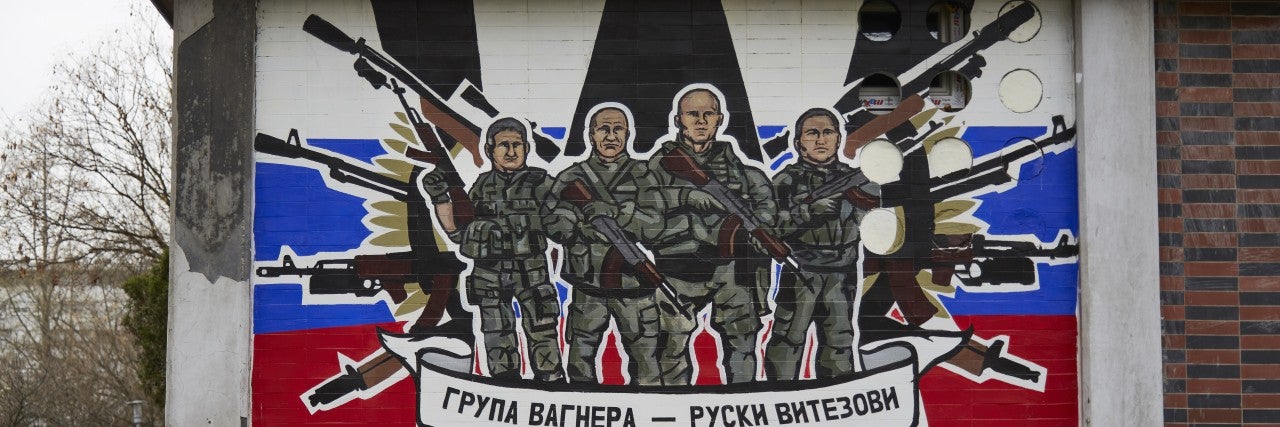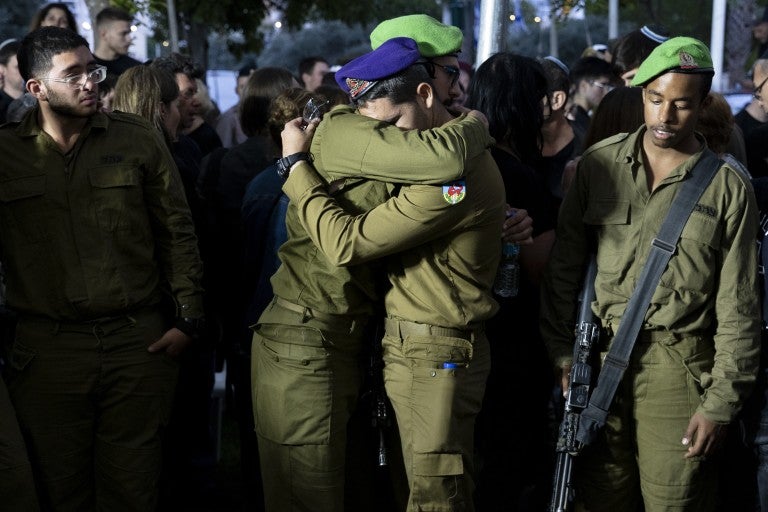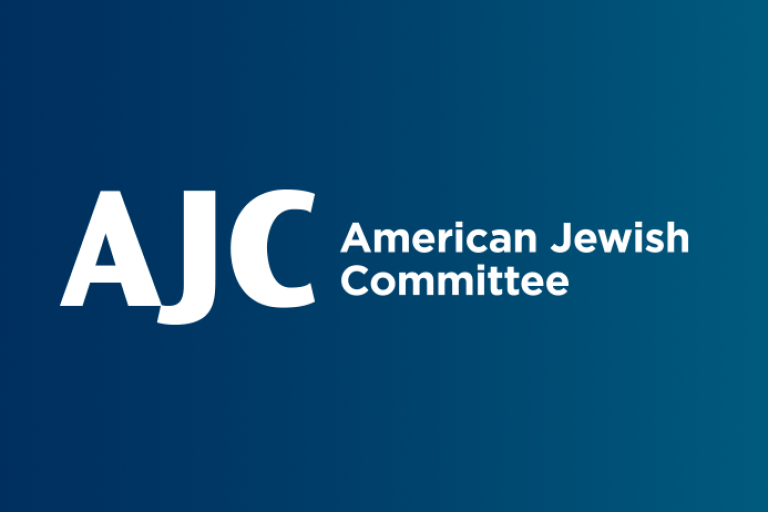February 21, 2023
Shocking acts of violence targeting Ukrainian civilians are a hallmark of Russia’s unprovoked invasion of Ukraine.
Since the earliest days of the invasion that began nearly a year ago, the “Wagner Group” has reportedly played a key role in several heinous attacks, including the massacre of hundreds of Ukrainian civilians in Bucha and the placement of explosives at Ukraine’s Zaporizhzhia nuclear power plant, which threatened the lives of millions in and beyond Ukraine.
TAKE ACTION NOW: Urge Congress to Designate the Wagner Group a Terror Organization
What is the Wagner Group?
The Wagner Group is a private military company with ties to Russian white supremacist and neo-Nazi far-right extremists.
The Wagner Group is led by Dmitry Utkin, a former Russian soldier, and was founded by Russian oligarch Yevgeny Prigozhin. The shadowy group first emerged during Russia’s invasion of Ukraine in 2014.
Since then, it has operated in other areas of the world to advance Russian state interests, the interests of Russian-state companies, and some Russian oligarchs. Many of its members are former Russian military.
Where has the Wagner Group operated?
The Wagner Group fighters have deliberately committed brutal acts of violence against civilians in other countries outside of Ukraine, mainly in Africa and the Middle East.
In the Central African Republic, for example, United Nations experts alleged in 2021 that Wagner Group forces had committed systemic atrocities there, including arbitrary detention, torture, disappearances, and summary executions, as well as sexual violence and looting.
In Mali, Wagner Group forces have been implicated in several massacres, including one in March 2022 in which at least 400 civilians were killed, and in torture, disappearances, and looting, as they have simultaneously fought rebels while attempting to secure mining concessions and advance military ties between Mali and Russia.
In addition to Africa, the group has been active in the Syrian Civil War, where they have been accused of war crimes, and they even clashed with U.S. forces in 2018.
The group has also been tied to Iran’s increasing role in Ukraine. The U.S. Treasury Department recently sanctioned the Wagner Group for the transfer of Iranian UAVs to Russia for use in Ukraine.
Today, the Wagner Group’s activities in Africa – and elsewhere, as shown by the recent revelation of its receipt of missiles from North Korea – continue to provide it with important financial and military resources that support Russia’s continued invasion of Ukraine.
Why is it called the Wagner Group?
The origin of the name of the group is unclear. It is believed that the company was named after founder Dmitry Utkin’s old military call sign “Wagner.” Utkin, who reportedly has neo-Nazi sympathies, is said to have chosen that name in honor of the 19th-century German composer Richard Wagner. Adolf Hitler was an admirer of Wagner’s music, which he saw as the embodiment of the German nation.
Is the Wagner Group a neo-Nazi organization?
There’s a growing body of evidence connecting leaders and members of the Wagner Group to various neo-Nazi sympathies and movements, including Dmitry Utkin, who reportedly has several Nazi tattoos.
Wagner operatives frequently spray-painted swastikas and SS lightning bolts as graffiti. Many founding members of Wagner also belong to the Russian Imperial Movement, an ultra-nationalist and white supremacist group, which the U.S. State Department has declared a terrorist organization.
A neo-Nazi paramilitary group called Task Force Rusich, which has also been fighting in Ukraine and linked to the Kremlin, is closely aligned with the Wagner Group. The U.S. Treasury Department enacted sanctions against Rusich in September, saying it is “a neo-Nazi paramilitary group that has participated in combat alongside Russia’s military in Ukraine.”
What is the Wagner Group doing in Ukraine?
The Wagner Group was involved in the initial invasion of Ukraine in February 2022, where Wagner Group commandos were reportedly tasked with the assassination of Ukrainian President Volodymyr Zelensky. German intelligence also suggested that Wagner fighters may have played a role in the Bucha killings.
Today, according to UK intelligence, Wagner Group commands 50,000 fighters in Ukraine and has become a key component of the Ukraine campaign for Russia, especially in Russia’s objective to capture the Ukrainian city of Bakhmut. Among those fighters, about 80% are drawn from Russian prisons, according to the U.S. National Security Council.
The danger facing Ukrainians from Wagner’s involvement and its capacity to terrorize the civilian population is only growing as it floods the country with untrained, undisciplined fighters taken straight from Russia’s brutal prison system. In addition to drawing ranks from convicts, the Wagner Group is openly recruiting in Russian cities, on billboards, and is being named in Russian media as a patriotic organization.
What are the Wagner Group’s ties with the Russian government?
The Wagner Group operates in a legal gray area in Russia. Russian law forbids citizens from serving as mercenaries, but state-run companies can have private armed security forces.
Nevertheless, the group registered as a company in 2022 and opened a headquarters in St. Petersburg. The group’s leader, Yevgeny Prigozhin, has increasingly become more vocal in the public sphere about Wagner’s fighting prowess in Ukraine and purportedly has Russian President Vladimir Putin’s support.


